
Arab minority participation in collective action
The societal and economic integration of the Arab minority is considered an essential factor for Israel. This research inquires how Arab minority members resolve the social dilemma of participation in collective action at the general society level. We use behavioral experiments methodology.
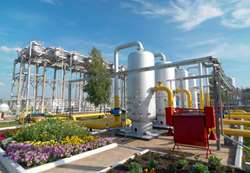
Industrial Symbiosis in the North of Israel
The term "Industrial Symbiosis" describes a situation in which an industry develops a symbiosis with another industry in a beneficial way for both parties, so that the waste of one organization can serve as raw materials for the other industry. As part of a pilot initiated by the Ministry of Economy, 4s LTD. promotes the project in the North of the country, with Dr. Fortuna and prof. Ayalon as consultants.

100 Days Project
The aim of the “100 Days Project” is to formulate a socio-economic agenda that proposes solutions to some of the main issues the Israeli community faces and that will serve as a road map for the first 100 days of the next government.
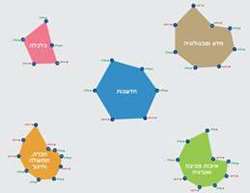
"Wheels of Life" in Israel
The "Wheels of Life" project was launched in 2013, in order to compare Israel's performance with the performance of other countries in five main dimensions of Israel's society: economics, innovation, science and technology, society-governance- education, environment, and energy. The data source used for comparative analysis is the World Competitiveness Yearbook of the IMD School of Management, a leading business school in Lausanne, Switzerland, which presents data on a wide range of global competitiveness variables in 60 countries.

Policy Incentives for Knowledge Creation
The project is implemented under the Seventh Program of the European Union (FP7), a consortium that consists of seven countries (Italy, Germany, France, Spain, Poland, the UK, and Israel). The purpose of the project is to examine empirically the role of the demand side in the creation of technological knowledge, recognition of technological and organizational innovation, and encouraging the increase in productivity. The project is formally complete and our contribution was expressed in five outputs.

Innovation in the Service Sector
This initiative by the Samuel Neaman Institute with joint funding of SNI and the Chief Scientist at the Ministry of Industry, Trade and Labor, is designed to examine innovation in the service sector for the first time in Israel.

Affordable Housing: Developing Policy, Awareness and Pilot Projects
Housing affordability, or the lack of it, was the issue that sparked the mass social protests of Summer 2011, with tent camps in tens of cities and hundreds of thousands of demonstrators. This project works to develop new policies to promote affordable housing and social mixed neighborhoods in Israel. We draw on the experiences of other developed countries in creating new tools of regulatory planning and financial innovations.

Adopting ICT in agriculture, education and development of the rural space
This study deals with the cultivation and optimization of innovation in agriculture, using ICT as a means to design agricultural education for a variety of ages and the development of the rural sector. These are of strategic importance to Israel. The recommendations and conclusions derived from the study were incorporated in the report by the Samuel Neaman Institute whose objective was to empower classic industries. The report was presented in 2012 to the Ministry of Agriculture and regional rural organizations.
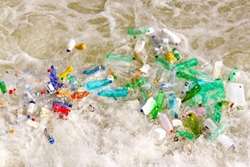
National Policy for Packaging Waste Management
The aim of this research was to examine policy alternatives for sustainable management of packaging waste in Israel. The work includes the definition of packaging types, weight estimation of packaging waste produced in Israel, a survey of packaging waste treatment methods in Europe and around the world

Intellectual Property in the Government Sector: The State of Affairs
The goal of the study is to create an infrastructure for forming a policy on the issue of intellectual property rights to knowledge that constitutes a product of R&D activity that is funded by the government and executed by governmental agencies/civil servants. The aim is to consolidate recommendations on guidelines in order to build a strategy for managing intellectual property in accordance with the government R&D objectives and to study the implications of knowledge transfer owned by the government through the commercialization of intellectual property rights.

Cooperation Policy in Business and Science with East Asia
Within the national policy framework to expand cooperation with the East, an issue that was discussed in the past has been raised again in practical terms, namely the collaboration between Israeli industry and leading industries in China and India. Two large Israeli companies were recently acquired by leading companies of China and India; the company "Makhteshim Agan" was acquired by Chem China and the company "Taro" were acquired by Sun Pharma, a well-known Indian company.

Israel's Policy on Developing Transport Infrastructure
This research focuses on preparing a policy document on the subject of a transport master plan for the National Council for Economy at the Prime Minister's Office. The objective of the study was to assist in the development of a policy to be determined by the Government on the subject of road and rail transport development in Israel.

National Infrastructure in Israel for the Year 2048
This is an ongoing project that deals with long-term planning on developing national infrastructures. Planning long-term infrastructure is of great importance for Israel for at least three reasons: the limited physical dimensions of the country; the continued relatively rapid demographic growth; and the long time required for planning and execution of infrastructure projects. Among the main goals of the research is to keep options open in the long-term, remove barriers that would prevent the construction of strategic facilities and networks, and a coordinated and optimized use of the limited areas of the country.
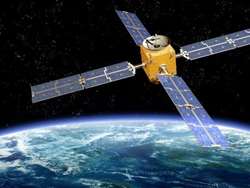
Innovation 2011 – Active Industrial Policy for leveraging Science and Technology and Israel's Unique Culture of Innovation.
The program commenced at the end of 2009 and ended in 2011. The project was initiated by the U.S.-Israel Science and Technology Foundation, was authorized by the Minister of Industry, Trade and Labor and led by the Chief Scientist of the Ministry. Innovation 2011 is a strategy for implementing the mission outlined in "Israel 2028 –Vision and Strategy for Economy and Society in a Global World," initiated by the U.S.-Israel Science & Technology Foundation and presented to the Government of Israel.

Proceedings of The International Conference On Privatization In Higher Education
The S. Neaman Institute is leading a movement for critical examination of the university of the future and higher education in Israel. In this context, in December 2004, the Institute sponsored an international scientific conference entitled "The Transition to a Mass Higher Education System - International Comparisons", in cooperation with the United States-Israel Educational Fund, which manages the Fulbright Program for student and faculty exchanges, and the ISEF Fund.

Israel 2028: Vision and Strategy for Israel
Continuing the efforts to actually implement the program "Israel 2028 – Socio Economic Vision and Strategy in Global World", the Samuel Neaman Institute initiated several projects designated to prepare a multi-annual implementation programs, in collaboration with government agencies.

Evaluation of the Space Industry's Impact on the Israeli Economy
This project is operating under the auspices of the S. Neaman Institute and the Economics of National Security (ENS) Research Program. Its goal is to map out the interconnections between Israel's academy, national defense system and industry in light of the country's growth in space industry and in space technology R&D.

Evaluation of the Program Salary-Employment Advancement of New Immigrants
The current study was commissioned by the Ministry of Immigrant Absorption in cooperation with the Samuel Neaman Institute. The main goals of the research were: to identify the factors which affect the employment of immigrants at the conclusion of the period of assistance and in the course of time, examine the effect of running the program on the employment of new immigrants and formulate recommendations that could assist policy makers in improving the program.

The Martin and Dorothy Kellner Health Promotion Program
The program will consist of a longitudinal field study in a medium-size Israeli town where an intensive and comprehensive program will be implemented on the individual, family, and community levels. The program falls in the realm of primary prevention which will focus on individuals at high risk for a physical disease, who have not yet been affected by the condition to be prevented.

Prime - Euro CV
The Euro CV project was part of the PRIME network of excellence that examined the use of new indicators for science, technology and innovation (ENID). The PRIME network operated within the EU's Framework Program for Research and Technological Development (FP6).

The Acceleration of Arab Society's Involvement in the Israeli Economy and Business Sector
The national importance and the urgency of accelerating the Arab citizens' integration into Israel's economy is increasing in Israel. A variety of state, business and voluntary organizations are dealing with this subject. For this purpose, we intend to hold a series of discussions with the major organizations dealing with the economic/business aspect of the subject

Strategic Policies for Increasing Arab Women's Participation in the Labor Market
A significant problem facing the social and economic development of Arab society today is the low rate of Arab women's participation in the labor force. Only one fifth of Arab women participate in the labor force, compared to 60% among Jewish women in Israel. This low employment rate is reflected in the high poverty levels in Arab society where more than 50% of the Arab households live under the poverty line according to the 2008 statistics.

Effects Of Privatization On The Quality Of Higher Education
The purpose of this study is to analyze the relationship between privatization in higher education and the quality of universities. An interesting fact is that of the top 10 universities in the US, nine are private. Previous studies have claimed that there is a relationship between the privatization of universities and their quality, since countries with a high proportion of private resources have superior universities.

R&D Project On Fighting Terror
This project is a joint effort of the Council for National Security and the S. Neaman Institute. In this project, various methods for supporting and enhancing R&D to combat terror are evaluated, integrating the private, government and defense sectors.
_20170427153244.537.jpg?w=250&quality=60)
Reclaiming the Dead Sea: Alternatives for Action
The aim of this project was to evaluate and present different alternatives for rehabilitating the Dead Sea and the Jordan River. In the process, three main alternatives were examined: "business as usual", introducing sea water into the Dead Sea (from the Mediterranean or from the Red Sea), and water supply from the Jordan River.

National Infrastructure in Israel - 2028
This national strategic plan integrates economic and social factors designed to meet the following mission statement: The State of Israel will be among the world's ten to fifteen leading countries in terms of income per capita; it will strive for the good of all its citizens, their quality of life and the future of its young generation.
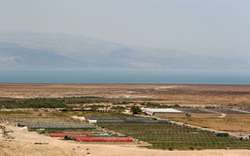
Promoting Sustainable Development in the Negev Desert
The goal of this research and development project is to endorse genuine sustainable development for the Negev. The program is carried out by the S. Neaman Institute team in collaboration with the Sustainable Negev NGO.

Dialogue, Mediation and Conflict Resolution Between Industry and Community
In the past, industry has not always adequately addressed environmental issues, nor have the authorities developed laws and bylaws suitable to tackle these problems. Yet over the last decade, governmental and municipal authorities are taking a hard line on environmental issues, and public awareness of environmental risks is increasing.

Funding Basic Science In The Universities
The study relates to various institutions and methods, which include: The Israel Science Foundation, the First program; the budgeting model at the Planning and Grants Committee, and various other sources.

Human Resources for Science and Technology in Israel
The goal of this project, which is operating under the auspices of the S. Neaman Institute and the National Council for Civil Research & Development (MOLMOP) in cooperation with the Central Bureau of Statistics, is to present data on the science and technology human resources in Israel. This data will assist the MOLMOP members in shaping a policy concerning science and technology labor force training for the industry and academic sectors.
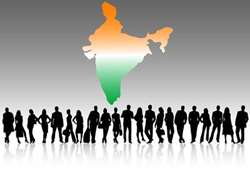
National Innovation Strategies: International Comparisons and Collaborations
In 2004 the S. Neaman Institute launched a research program for the study of the variety of issues which motivate - and prevent - business innovation in Indo-Israeli economic cooperation. The premise of the program has been the recognition that Israel and India have complementary interests in forming sustainable economic relationships.

Conditions For The Prosperity Of The State Of Israel
In 2004, the S. Neaman Institute established a research project to address the fundamental problems facing the State of Israel and the Jewish people. To that end, the Institute assembled a group of the country's top thinkers and researchers in different areas of expertise - philosophy, society, law, politics and technology

The Economics Of Higher Education (EHE)
Over the past year, a broad research activity took place on the topic of "The Economics of Higher Education: Towards the redesign of the 'Israeli Model'" (in short, EHE), in collaboration with Forum Sapir. The higher education system in Israel is undergoing a profound crisis, which calls for a swift revision of the basic premises upon which it has functioned over the past half century.

The Zvi Griliches Research Data Center
The Zvi Griliches Research Data Center was established in 2000 to encourage the study of empirical economic of Israel in issues related to the economy of research and development, the high-tech sector, innovation, human capital and productivity.
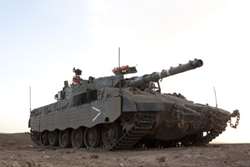
Economics of National Security Program (ENS)
The ENS Program was launched at the end of 2003 as an intermural research program aimed to initiate, encourage and support academic research on the mutual links between economic conditions and national security. Its main goals are to provide in-depth analysis of the economic costs and consequences of the Israeli security situation, the contributions of security and defense expenditures to economic progress, and to estimate the resources allocated to Israel's defense.

The Society and National Security
This program was initiated at the beginning of 2004 and ended in March 2005. The aim was to create a forum for the research of national security that will be an independent research group sponsored by the S. Neaman Institute.

"Israel 2020" to "Israel 2050"
The "Israel 2020" plan was profoundly affected by current planning practices. All of "Israel 2020"'s principles have been implemented in the National Outline Plan for Building, Development and Preservation, NOP no.35, that was approved by the Israeli National High Committee for Planning and Building and by the Israeli Government.

Science, technology, economics (STE)
STE is a core program of the S. Neaman Institute, aimed at developing national policy alternatives for key issues lying at the interface between Science, Technology and the Economy.
-min_20190317145646.778.jpg?w=250&quality=60)
Examining R&D Activity Areas, Infrastructure and Labor Force in Subjects Involving Space
This work was commissioned by the National Space Committee, the National Council for R&D. The objective of this study is to provide data and information to all entities operating in the field of space R&D on their role and the status of personnel and infrastructure at their disposal, in order to help the NCRD formulate a national plan for the development, preservation, and promotion of R&D in the field of space.

Adapting the Demand for Training Knowledge Workers in Local Labor Markets
This research was done within the framework of Pick-Me project – WP 6. In this study data gathered in an Israel Central Bureau of Statistics survey among more than 5,000 Israeli university and colleage graduates were analyzed. The survey examined the extent of the graduates’ integration into the labor market.
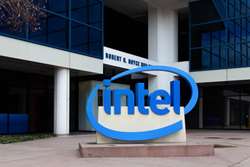
The Contribution of Large Companies to the National Economy
This project deals with the contribution of the large companies to the industrial and technological economy, in order to examine whether the existence of the large companies is essential to the industrial-business ecosystem. Related activities began in 2012, and continued in 2013 in cooperation with the economists Dr. Freeman and Yuval Niv. An additional partner in the project is Teva, which helps with the data required to assess its total contribution to the state's economy.

Tax Benefits for Business R&D in Israel
This project examines the tax incentives system to encourage R&D in the business sector in Israel. More than two thirds of OECD countries and many others encourage R&D activities in the business sector with tax benefits based on the volume of R&D expenditures reported by the firms.

The Industrial Excellence Center
The Industrial Excellence Center was established in 2011 and its objective is to promote a national industrial policy. The Center helps formulate and promote a proactive policy of industrial excellence, intended to sustain a balanced and high-quality national industry that maintains a healthy lifecycle, which is tested by its global competitive advantage and quality employment of all sectors of society. The Industrial Excellence Center is also part of the Israel 2028 Vision.

Integrating the Ultra-Orthodox Population in the Israeli Economy
The Ultra-orthodox (U-O) Integration Project was inaugurated at the Samuel Neaman Institute in 2010, following the recommendations of the ”Israel 2028” Project. The goals of the UOI Project were to investigate the subject and provide recommendations as to how to enhance the participation of the U-O population in the labor market in Israel. During the last 5 years, the project team has produced a multitude of analyses on various aspects of the subject matter and has published numerous reports, which in turn had significant impact on the national policy in this area.
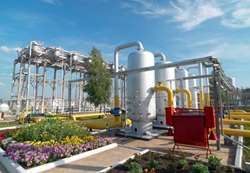
National Policy on the Use of Natural Gas
The application of natural gas in industry requires that the dilemma concerning its transportation in Israel be studied. According to the solution that was selected, a government company transports the gas to the distribution centers and to the largest consumers, but transport to smaller industries is left to private enterprises. We believe that this leads to small and medium industries having an unequal opportunity to realize the benefits of natural gas, and that the present design will mainly affect classic industries, whose energy costs constitute a significant part of their expenses, and whose profits do not allow them to be competitive without replacing liquid fuel with natural gas.

Energy Forum
The purpose of the Energy Forum meetings is to provide a professional platform where professional can discuss specific energy related topics. At the same time, the Forum allows multilateral discussions encouraging projects in the fields of renewable and energy conservation. The forum meetings serve as a platform for defining professional, applicable positions, to be used by relevant decision makers.

Indices for Science, Technology and Innovation in Israel and international comparison
At the beginning of the 21st century, the Samuel Neaman Institute identified the need to establish an infrastructure for advancing a systematic and ongoing process of forming national policy on Science, Technology, and Innovation (STI). The objective of this program is to improve the understanding of the STI system of Israel and to answer the question of how processes associated with the development of science, technology, and innovation contribute to increased knowledge, increased productivity, improved economic performance, professional employment, sustainable development, and social welfare. Understanding of the process is based on the collection, analysis, and correct presentation of the various relevant indices and on the analysis of trends as they change over time and in comparison with other countries.
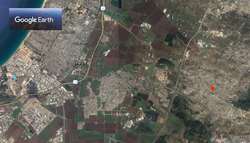
the construction of an insdustrial park in the areas of shfara'am
A master plan for the construction of a new industrial park at the closed quarry of Shfar'am, consolidates a recommended strategy for the new industrial zone in Shfar'am, to be built in the quarry adjacent to the eastern side of the town of Shefar'am. For the first time in Israel, an Arab municipality is leading a significant process of promoting the combined Jewish-Arab economy.

Israel's Land Policy and Housing Prices Abstract – Summary of Pilot Study
SNI has taken on the challenge to examine the reasons for the increase in housing prices in Israel. Among other things, it was found that investing efforts to curb the high housing prices ignores the implications of the fact that only in Israel, unlike all other OECD countries, most of the land reserves are nationally owned.
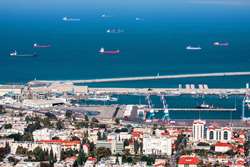
Haifa Ports - The Growth Engines For the North of Israel
The connection between the port and the port city and its surrounding area is a dynamic and multi-dimensional relationship. In this review, the interaction is examined from the economic dimension. Over the years, the port served as a strong economic anchor, although in many cases the question was asked whether the port contributes to the development of the city and the region, or, alternatively, the city contributes to the development of the port and the region.
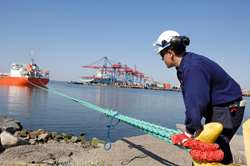
Future Trends in Israel Seamanship: Marine Manpower
About 99% of Israeli trade is transported by sea. Despite the peace agreements with Jordan and Egypt, in times of war it is impossible to rely on these bordering countries for overland trade routes, and therefore, Israel has to maintain and develop its maritime routes in peacetime and all the more so in wartime. Thus, this study focused on analyzing the needs of the Israeli economy, taking into account the expected developments of Israeli shipping and the infrastructure development of ports in Israel.

An Analysis of Israel's Renewable Energy IndustryAn Analysis of the Renewable Energy Industry of Israel
This project began as part of a joint venture with the Newtech unit at the Ministry of Economics, and since 2015 it has continued with the funding of the Samuel Neaman Institute, as part of the Industrial Excellence Center. The goal of the project is to leverage Israel's position as a leader in the field of renewable energy, including energy production and its integration into the energy system, efficiency improvements, and the development of fuel substitutes.
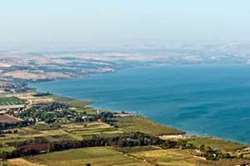
Upgrading the Economic System of the North
In mid-2014, SNI joined a venture with the Ministry of Economic and Industrie, aimed at drafting a plan for substantial improvement of the economic status of the North. During 2015, the project was completed and a summary report, which includes an analysis of the socioeconomic situation in the north, and recommendations to realize change-generating infrastructure anchors and non-linear growth generators, was submitted to the Government.

Grand Strategy For Israel
The Overarching Strategy Forum was established at the initiative of the former national security adviser to the Prime Minister and the head of the National Security Council, Prof. Uzi Arad.

Empowering the Classical Industry
2016 was characterized by the promotion of the outline proposed by the Committee to Empower Classical Industry, expanding it into other areas, such as education, promoting technological-vocational education

Sectorial Specialization and Diversification Indices for R&D
Economic activity that is concentrated in a small number of sectors could indicate specialization and that competitive advantages are being exploited. However, it can also render the economy vulnerable to risks arising from technological and economic shocks.